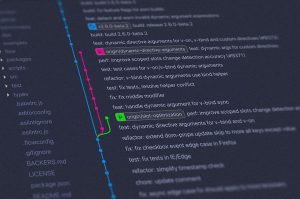Common Financial Planning Mistakes in Virginia and How to Avoid Them
5 min read
Financial planning is essential for individuals and families looking to secure their future, especially in places like Virginia where diverse economic conditions, cost of living, and legal nuances can significantly impact your strategy. Whether you’re planning for retirement, buying a home, or saving for college, avoiding common financial planning mistakes is crucial. Unfortunately, many Virginians fall into the same traps that can derail even the best intentions.
This article explores the most common financial planning mistakes made in Virginia and offers guidance on how to avoid them, allowing residents to make confident and informed financial decisions.
1. Underestimating the Cost of Living in Virginia
One of the primary financial pitfalls for newcomers and long-time Virginians alike is underestimating the cost of living. With areas like Northern Virginia ranking among the most expensive in the southeastern U.S., it’s easy to feel caught off guard by high housing, transportation, and tax costs.
Solution: Begin with a realistic budget based on your locality. Use tools and resources specific to Virginia, such as the Virginia Housing Development Authority for accurate housing price estimates. Set a monthly budget and revisit it quarterly to adjust for inflation and lifestyle changes.

2. Failing to Plan for State Taxes
Virginia’s tax system includes both state income tax and real estate taxes that can differ significantly from county to county. Many individuals fail to account for these expenses properly in their planning efforts, leading to surprises come tax season.
Solution: Familiarize yourself with Virginia’s tax brackets and potential deductions. Consider speaking with a local tax professional who understands nuances like county-specific property tax rates and how they interact with state regulations. Make quarterly estimated tax payments if you’re self-employed or have other non-traditional income to avoid penalties.
3. Neglecting Retirement Planning Until It’s Too Late
Many Virginians put off retirement planning due to more immediate concerns like education costs or housing expenses. However, failing to invest early and consistently can result in a lack of financial freedom in later years.
Solution: Start saving as early as possible, even if it’s a modest amount. Take full advantage of employer-sponsored retirement plans like 401(k)s and explore additional options such as IRAs (both traditional and Roth). Virginians employed by the state should also be well-versed in the Virginia Retirement System (VRS) and how to supplement it.
4. Overlooking Long-Term Healthcare Costs
Virginia has a higher population of retirees compared to other states, making long-term healthcare planning crucial. However, many people, especially those in their 30s and 40s, don’t account for medical expenses that can emerge later in life, such as assisted living or home healthcare.
Solution: Purchase long-term care insurance while you’re still relatively young and healthy. Explore Health Savings Accounts (HSAs) if you have a high-deductible health plan, allowing you to save pre-tax dollars for future medical expenses. Early planning can help ensure you won’t have to deplete your retirement savings on healthcare costs.
5. Not Having an Estate Plan
Too many Virginians postpone creating wills, powers of attorney, or healthcare directives. Without these essential documents, your financial and medical decisions may fall into the hands of the courts rather than trusted family members.
Solution: Create a comprehensive estate plan regardless of your age or current net worth. Work with an estate planning attorney who is familiar with Virginia’s probate laws. Review and update your beneficiaries regularly on accounts like life insurance, investment profiles, and retirement plans.

6. Relying Too Heavily on Real Estate as an Investment
With attractive appreciation in markets like Richmond and Virginia Beach, many residents see real estate as a primary path to wealth. However, real estate is illiquid, carries considerable maintenance costs, and is susceptible to market downturns.
Solution: Diversify your investment portfolio. While homeownership is a valuable goal, it shouldn’t be your only investment. Consider low-cost investment options like index funds, bonds, and employer-sponsored stock plans. Consult with a certified financial planner in Virginia to build a plan matched to your risk tolerance and long-term goals.
7. Overextending Credit and Ignoring Credit Health
Credit card debt, auto loans, and personal loans can quickly accumulate, leaving Virginians with high interest payments and lower credit scores. This not only impacts your ability to borrow but also affects your insurance premiums and even job prospects in some cases.
Solution: Practice responsible credit usage. Aim to keep your credit utilization below 30% and make payments on time. Monitor your credit reports—free to access annually from all three major bureaus. Credit repair strategies should focus on legitimate means such as disputing inaccuracies and negotiating pay-for-delete settlements when appropriate.
8. Inadequate Emergency Funds
Unexpected expenses are a part of life, yet many people lack a proper emergency fund, leaving them vulnerable to job loss, medical emergencies, or urgent home repairs.
Solution: Build an emergency fund that covers three to six months’ worth of essential expenses. Keep these funds liquid—stored in high-yield savings accounts or money market accounts rather than tied up in investments. Revisit your savings goal annually as your lifestyle and responsibilities evolve.
9. Misunderstanding College Savings Options
With the high cost of higher education, some families prioritize saving for college at the expense of retirement planning, while others aren’t utilizing the best tools available. Not using Virginia’s tax-advantaged savings plans is a missed opportunity.
Solution: Leverage Virginia’s 529 College Savings Plans, which offer tax deductions on state income taxes for contributions. Analyze the true cost of attending in-state versus out-of-state universities and take availability of scholarships and grants into account. Don’t fund education at the expense of your future—students can borrow for college, but you can’t borrow for retirement.
10. Failing to Seek Professional Help
Trying to handle all aspects of your financial life alone, without professional guidance, can be a costly mistake, particularly as your financial life becomes more complex. Laws, taxes, and investment opportunities vary significantly in Virginia compared to other states.
Solution: Engage with a Certified Financial Planner (CFP) who is familiar with Virginia regulations. Look for fiduciaries who are legally obligated to act in your best interest. A qualified professional provides tailored advice, helps you stay on track, and adjusts your plan as circumstances change.
Conclusion
Financial planning is not a one-size-fits-all approach, and this is particularly true in a diverse and complex state like Virginia. By understanding and proactively avoiding these common mistakes, individuals and families can create a more stable and prosperous future.
Whether you’re fresh out of college or approaching retirement, the key to financial stability lies in making informed decisions, setting realistic goals, and seeking expert advice when needed. The sooner you start correcting these common mistakes, the greater your chances of achieving both financial security and peace of mind.



